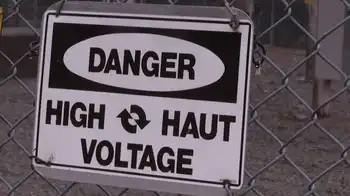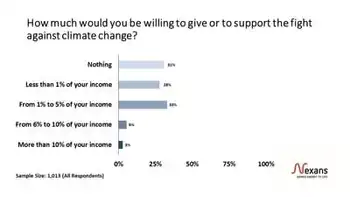Selling the “smart city” concept
By Associated Press
CSA Z463 Electrical Maintenance -
Our customized live online or in‑person group training can be delivered to your staff at your location.

- Live Online
- 6 hours Instructor-led
- Group Training Available
For the first time, the Combined Exhibition of Advanced Technologies, better known as Ceatec, devoted one area of the show floor to selling a vision of urban life in 2020 and beyond.
The Japanese version of the so-called "smart city" exists in a post-fossil fuel world. Alternative sources like the sun, wind and nuclear power are harnessed in mass quantities. That power is then distributed to buildings, homes and electric cars connected to each other through "smart grids," which monitor usage throughout the network to maximize efficiency.
The goal is to drastically cut carbon emissions, which many scientists believe cause global warming — ideally to zero. The bigger dream is for the smart city to become Japan's next big export, fueling new growth and ambition at a time when the country finds itself in an economic rut and eclipsed by China as the world's second-biggest economy behind the U.S.
The city of Yokohama, just southwest of Tokyo, is the site of a social and infrastructure experiment to create a smart city for the rest of the world to emulate. Launched this year, the "Yokohama Smart City Project" is a five-year pilot program with a consortium of seven Japanese companies — Nissan Motor Co., Panasonic Corp., Toshiba Corp., Tokyo Electric Power Co., Tokyo Gas Co., Accenture's Japan unit and Meidensha Corp.
"We want to build a social model to take overseas," said Masato Nobutoki, the executive director of Yokohama's Climate Change Policy Headquarters, during a keynote event at Ceatec. "Yokohama is a place where foreign cultures entered Japan 150 years ago and then spread to the rest of the country."
Now, he said, it's where the best of Japan is converging, preparing for launch to the wider world.
Japan certainly isn't the only country working on smart grids.
Australia has committed $100 million and is developing its first commercial-scale smart grid in Newcastle, a city a New South Wales state. South Korea is embarking on a $200 billion smart grid project on Jeju Island as part of efforts to cut national energy consumption by 3 percent by the year 2030. China is expected to invest a world leading $7.3 billion toward smart grids and related technologies in 2010, ahead of Washington's $7.1 billion in Department of Energy grants, according to market research firm Zpryme.
Zpryme estimates that the global smart grid market will be worth $171.4 billion in four years, up sharply from $69.3 billion in 2009.
Toyota Motor Corp. separately announced the launch of its own home smart grid system in Japan to coincide with its plug-in hybrid cars going on sale in early 2012.
Called the Toyota Smart Center, it calculates the most efficient way of using energy, eliminating waste by shutting off gadgets when they aren't being used and maximizing the recharging benefits of hybrids, which recharge as they run. Utilities can also be used when rates are cheapest such as overnight to heat stored water.
With competition heating up and so much business at stake, Japan is hoping to aggressively court customers overseas, especially in emerging economies, with not only its vision but also its long-standing reputation for reliability and quality.
If it's all a little hard to imagine, Nissan was offering a peek into the future at Ceatec. The centerpiece of the automaker's pavilion was a 3-D theater with a 275-inch screen giving viewers a virtual reality drive through a "near future" Yokohama. The virtual city tour will be replicated for leaders from around Asia when they gather in Yokohama next month for the Asia-Pacific Economic Cooperation meetings.
"We need to turn talk into reality," said Minoru Shinohara, senior vice president for technology development at Nissan, which will begin selling its Leaf electric car in December.
"If all we do is talk, I have a great fear that we will be surpassed," said Shinohara.











